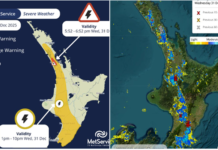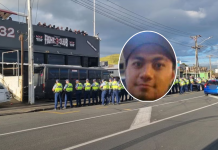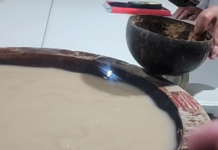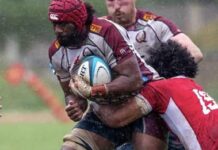Slave raiders took nearly 200 Tongans to South America in the 19th century, but some survived and their descendants could be living in Auckland today.
Raids by slave traders on Tonga in the 19th century have long been the subject of speculation and myths, but Auckland-based writer Scott Hamilton has unearthed new evidence about the raids and what happened to the survivors.
The story of the stolen Tongans has obsessed Dr Hamilton for several years and has resulted in the publication of The Stolen Island, which was launched in Auckland last week.
Islanders were regularly recruited by beche de mer and sandalwood traders as ship’s crews in the 19th century and for work on plantations. Germany recruited workers from New Guinea for its plantations on Samoa and Queensland ships recruited Islanders for work on plantations in that colony.
Once the European powers banned recruitment, plantation workers were kidnapped in a practice that has become known as blackbirding. However, while the Australian plantations have become notorious, fewer people know about the slave traders from South America who roamed the Pacific or that Polynesians as well as Melanesians were taken.
Dr Scott’s story tells the story of how, in 1863, the Peruvian government sent ships into the Pacific to find labourers to collect guano. When they could not find enough willing workers they resorted to kidnapping.
The Tasmanian whaler Grecian, under the command of Thomas McGrath, decided to profit from the situation and visited ‘Ata where he persuaded about 140 people to board his ship. Once on board they were locked in his hold.
After a less successful visit to Niuafou’ou and a failed attempt in the Lau group the Grecian headed for Peru. Before it reached South America it encountered the Peruvian slaver General Prim to which McGrath sold the Tongans.
In the meantime, the Peruvian government had cancelled all recruiting licenses under pressure from the European powers and ordered the Islanders to be released. Some of them made it to Peru, others were dumped on remote islands; starvation and disease decimated the ranks of all the Islanders who had been taken. Some survived to be absorbed into the Peruvian population
But did any of them make it back to the Pacific?
In a paper delivered at the ‘Atenisi Institute in Nukua’lofa in 2015, Dr Hamilton said he had come across a letter from a German trader in Auckland who said he had met a man at a horse race in Auckland in 1894 who had been taken from ‘Ata.
“The man identified himself as Isileli Latu and explained that he was an ‘Atan who had been kidnapped, taken to South America, and made to work there for 15 years,” Dr Hamilton said.
“Latu said he had escaped to Auckland, where he had married and settled.
“Since Isileli Latu married and had children in Auckland, it is possible that there are dozens or even hundreds of New Zealanders who have, even if they do not know it, ‘Atan blood flowing through their veins.”
Dr Hamilton said there was some evidence that another Tongan from ‘Ata survived. He said a former slave ship, the Barbara Gomez was taking a load of Pacific Islanders home when they became ill. The captain put them ashore on the islands of Rapa Nui and Rapa Iti.
Rapa Iti’s population was decimated by the diseases brought by the freed slaves and by 1865 there were only 20 men left. Of the 14 former slaves who survived, nine survived and had children.
“In 1936 a French yachtsman named Alain Gerbault visited Rapa Iti and met a woman called Tupou, who said that she was descended from a former slave who had been taken from Niuatoputapu to South America,” Dr Hamilton said.
In an interview with Radio New Zealand last Sunday Dr Hamilton said there were pervasive stories that some ‘Atans had secretly returned to Tonga and brought back money.
He said some people even believed that American troops who visited the islands were ‘Atans in disguise.
The Stolen Islands is published by Bridget Williams books.
The main points
- Slave raiders took nearly 200 Tongans to South America in the 19th century, but some survived and their descendants could be living in Auckland today.
- Raids by slave traders on Tonga in the 19th century have long been the subject of speculation and myths.
- Now Auckland-based writer Scott Hamilton has unearthed new evidence about the raids and what happened to the survivors.
- The story of the stolen Tongans has obsessed Dr Hamilton for several years and has resulted in the publication of The Stolen Island, which was launched in Auckland last week.
For more information
The Tale of the Hobart Whaler ‘Grecian’







